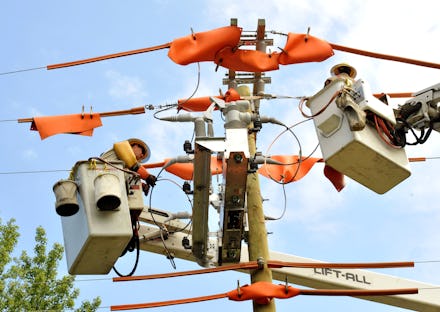Chattanooga Did Something Groundbreaking That America Should Follow

When you think high-speed Internet, what city comes to mind? Chances are it's not Chattanooga, Tennessee.
Yet Chattanooga has done something groundbreaking for its citizens. The public energy utility, EPB, found that its smart grid could be used to deliver fast Internet. As a result, the city now has the fastest broadband in the U.S. for what often amounts to less money than cable companies charge.
As you can imagine, cable companies were not at all happy about this. What if other cities realize what Chattanooga did? Luckily for for them, they have friends in high places.
The legislation: Republicans in Congress have introduced an amendment that would make it illegal for cities like Chattanooga to ask the FCC for permission to build their own broadband networks.
Here's how it works: More than 20 states have laws that won't let local communities compete with telecom companies. Tennessee, for instance, has a law that won't allow EPB to operate outside the city. So, while EPB would love to offer faster, cheaper Internet to the one in five Tennessee residents who has no Internet access, it needs permission from the FCC to preempt its state law.
The FCC, in a fit of common sense, has signalled that it would allow this preemption to occur. House Republicans want that to be illegal, protecting cable companies instead. Their argument is framed around states' rights — thanks to the state non-compete laws — while ignoring the fact that the national government would be telling local towns and cities what they can and can't do.
Marsha Blackburn (R-Tenn.), who introduced the amendment in the House, was called "Big Telecom's best friend in Congress" by Vice. AT&T and Verizon are her second- and third-largest donors, and Comcast as well as the National Cable and Telecommunications Association have chipped in tens of thousands each.
A matter of competition: Even leaving aside the incoherent preemption politics of the Republicans supporting the amendment, it's still an affront to competition. Free markets are all well and good, it seems, as long as your favorite companies barely have to compete.
Thanks in large part to lobbying and non-compete agreements, nearly one-third of Americans have no choice in broadband provider. Meanwhile, many cities have high-speed broadband infrastructure that residents aren't allowed to use.
Proponents of cheaper, faster Internet — and proponents of Net Neutrality — should be rooting for Chattanooga. Anything opposed by Comcast has to be good news for customers, right?